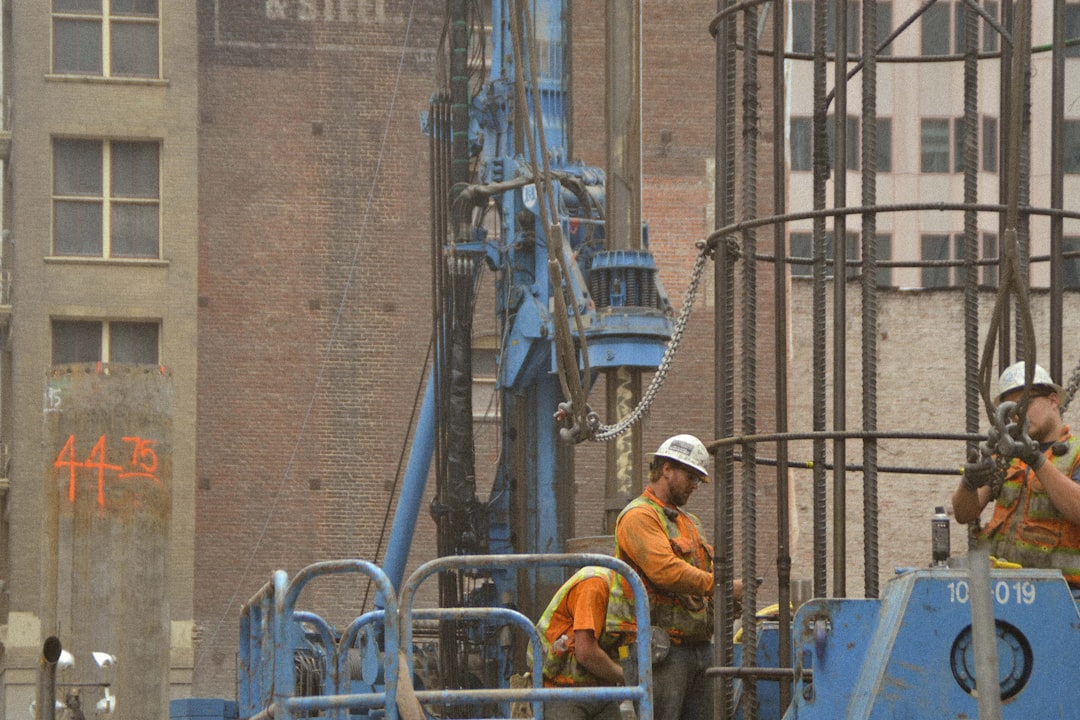body {
font-family: sans-serif;
line-height: 1.6;
}
h1, h2, h3 {
color: #333;
}
Oil refineries are complex and hazardous environments, demanding materials that can withstand extreme pressures, temperatures, and corrosive substances. At the heart of this intricate network lies a critical component: steel pipes. These seemingly simple structures are the arteries of the refinery, transporting crucial fluids and gases throughout the process. This post delves into the vital role of steel pipes in oil refineries, exploring their selection, properties, challenges, and future prospects.
1. Material Selection: Choosing the Right Steel for the Job
The selection of steel pipe for oil refinery applications is far from arbitrary. It’s a critical decision influenced by factors such as the transported fluid, operating temperature and pressure, and the potential for corrosion. Common steel grades used include:
- Carbon Steel: A cost-effective option suitable for less demanding applications, often used for low-pressure steam or water lines. However, its corrosion resistance is limited.
- Alloy Steel: Offers enhanced strength and corrosion resistance compared to carbon steel. Specific alloying elements are chosen to combat specific corrosive agents present in the refinery process. Examples include chromium-molybdenum (Cr-Mo) steels, which are frequently used in high-temperature and high-pressure services.
- Stainless Steel: Known for its excellent corrosion resistance, stainless steel is employed where highly corrosive fluids are handled, such as in chemical processing units or in handling sour crude oil (containing hydrogen sulfide).
- Duplex Stainless Steel: Combining the properties of austenitic and ferritic stainless steels, duplex grades offer superior strength and corrosion resistance, particularly in chloride-containing environments.
The precise grade selection involves detailed analysis of the process conditions and a thorough risk assessment to ensure long-term performance and safety.
2. Manufacturing Processes and Quality Control
The manufacturing of steel pipes for refineries adheres to stringent quality control standards. Common manufacturing methods include:
- Seamless Pipes: Produced by piercing a heated steel billet, resulting in a homogenous structure with no welds, offering superior strength and resistance to fatigue.
- Welded Pipes: Created by joining steel plates through welding. While less expensive than seamless pipes, welded pipes require rigorous inspection and testing to ensure weld integrity and prevent leaks.
Quality control involves rigorous testing throughout the manufacturing process, including:
- Chemical Composition Analysis: Verifying that the steel meets the specified chemical composition.
- Mechanical Testing: Assessing the tensile strength, yield strength, and elongation of the steel.
- Non-Destructive Testing (NDT): Techniques like radiography, ultrasonic testing, and magnetic particle inspection are used to detect internal flaws or surface imperfections in the pipes.
- Hydrostatic Testing: Pipes are subjected to internal pressure to verify their ability to withstand operating pressures without leakage.
3. Corrosion Management and Protective Measures
Corrosion is a major concern in oil refineries, threatening the integrity of steel pipes and leading to leaks, spills, and costly downtime. Several measures are employed to mitigate corrosion:
- Material Selection (as discussed above): Choosing corrosion-resistant steel grades is the first line of defense.
- Protective Coatings: Applying coatings such as epoxy resins, paints, or zinc galvanization creates a barrier between the steel and the corrosive environment.
- Corrosion Inhibitors: Chemicals are added to the transported fluids to slow down the corrosion process.
- Cathodic Protection: An electrochemical technique that uses an external current to protect the steel pipes from corrosion.
- Regular Inspection and Maintenance: Periodic inspection and maintenance programs, including internal and external visual inspections, help to identify and address corrosion issues before they become critical.
4. Safety and Regulatory Compliance
The safety implications of steel pipe failure in an oil refinery are severe. Leaks can lead to fires, explosions, and the release of hazardous substances. Therefore, strict safety regulations and standards govern the design, installation, and operation of steel piping systems. These regulations often include:
- Pressure Vessel Codes: Adherence to codes like ASME Section VIII (for pressure vessels) ensures the safe design and fabrication of pipes operating under pressure.
- Welding Standards: Strict welding procedures and qualified welders are essential to ensure the integrity of welded joints.
- Regular Inspections and Maintenance: As mentioned earlier, regular inspections and maintenance are crucial for identifying potential problems and preventing failures.
- Emergency Shutdown Systems: Refineries must have effective emergency shutdown systems to mitigate the consequences of pipe failures.
Compliance with these regulations is crucial for ensuring the safety of personnel and the protection of the environment.
5. Future Trends and Innovations in Steel Pipe Technology
The oil and gas industry is constantly evolving, and so too is the technology surrounding steel pipes. Future trends include:
- Advanced Materials: Research into new steel alloys with enhanced corrosion resistance and higher strength-to-weight ratios is ongoing.
- Smart Pipes: Integration of sensors and monitoring systems into steel pipes allows for real-time monitoring of pressure, temperature, and corrosion levels, enabling predictive maintenance and preventing catastrophic failures.
- Improved Welding Techniques: Advances in welding technologies, such as laser welding and automated welding systems, lead to higher-quality welds and improved efficiency.
- Advanced Coatings and Linings: Development of more durable and effective coatings and linings will further enhance corrosion protection and extend the lifespan of steel pipes.
- Sustainable Practices: Increased focus on environmentally friendly practices, including the use of recycled steel and the reduction of waste during manufacturing, is becoming increasingly important.
In conclusion, steel pipes are indispensable to the safe and efficient operation of oil refineries. Careful material selection, stringent manufacturing processes, robust corrosion management strategies, and adherence to safety regulations are essential for ensuring the reliable performance of these critical components. Ongoing innovations in materials science and technology promise to further enhance the performance, safety, and sustainability of steel pipes in the oil and gas industry.
Tags: Steel pipes, oil refinery, corrosion resistance, ASME, pipeline safety, oil and gas industry




